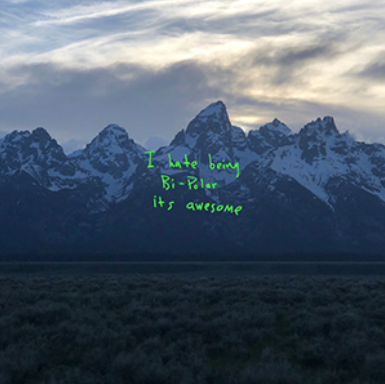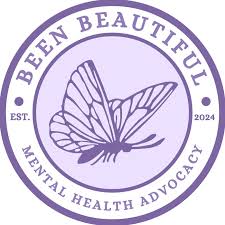
In the realm of distinguished and esteemed careers, one album stands out as incredibly meaningful: Kanye West’s ‘Ye,’ released on June 1st, 2018. The album’s cover alone reveals significant symbolism. Kanye changed his name to ‘Ye,’ explaining, “I believe ‘ye’ is the most commonly used word in the Bible, and in the Bible, it means you. So it’s I’m you, I’m us, it’s us,” in a 2018 interview with radio host Big Boy (BBC). This transformation from ‘Kanye,’ signifying ‘the only one,’ to ‘Ye’ reflects our collective human experiences, encompassing our virtues, flaws, confusion, and everything in between. This sets the overarching concept for the ‘Ye’ album, marking a profoundly influential start.
The album cover reads, ‘I hate being bipolar, it’s awesome,’ serving as Kanye’s confirmation of his bipolar disorder. Delving into the music:
I Thought About Killing You
The opening track of Kanye’s album prompts deep reflection. Kanye delves into the idea that the most profound thoughts often reside within the darkest corners of one’s mind. He illustrates this by analogizing his mental landscape to landscaping in the backyard: ‘Before we could put all the trees, and add the beauty, you gotta break some things.’ Kanye challenges the notion of Black perfection, highlighting the pressure for Black individuals to project an impossible image of flawlessness in the public eye, emphasizing the beauty found in imperfection.
Throughout the track, Kanye repeatedly references ‘premeditated murder,’ signifying contemplation and planning. This lyrical choice delves into the intense scrutiny of drastic actions. Kanye encourages bold expression, urging listeners to vocalize thoughts, despite societal constraints on speech. His outspokenness, both in his music and on social media, reflects his unwavering commitment to vocalize his beliefs, even if they stir controversy.
The conclusion of the song sheds light on society’s prying tendencies toward celebrities. Kanye acknowledges the public’s penchant for witnessing celebrities’ turmoil, emphasizing how society often disregards celebrities until they make mistakes or disappear.
Yikes
‘Yikes,’ a track co-written by Aubrey Graham (Drake), bears Drake’s influence evident in the vocal delivery. It’s been noted by many for its thematic similarities to Kanye’s earlier song ‘Wolves’ from ‘The Life of Pablo’ album. ‘Yikes’ delves into Kanye’s experiences while under the influence of drugs, offering a glimpse into that phase of his life. He openly acknowledges and embraces the necessity of his medically prescribed drugs, dispelling any reservations about their use.
The lyrics, ‘s*** could get menacin’, frightenin’, find help sometimes I scare myself,’ portray Kanye’s vulnerability, hinting at his uncertainty and need for support, even to the extent of fearing his actions without that help. Despite these struggles, the song concludes with Kanye interpreting his bipolar condition as a superpower, a statement that encapsulates his complex relationship with his mental health.
All Mine
In this track, Kanye propelled the relatively unknown Ant Clemons to newfound recognition by transforming Clemons’ demo into a collaborative song. Ant Clemons’s involvement marked a significant elevation in his recognition within the industry. Kanye’s verses within the song navigate through a defense of his dating choices amid criticism, exploring various relationship dynamics. The opening stanza touches upon themes of infidelity, encompassing affairs and scandals, delving into the complexities of romantic connections.
In the second verse, Kanye punctuates certain phrases with impactful sound effects, adding a sonic dimension to his delivery. Despite its brevity, the song offers an intriguing exploration of Kanye’s thoughts on relationships and personal choices.
Wouldn’t leave
In ‘Wouldn’t Leave,’ Kanye candidly addresses the consequences of his controversial statements in the media, acknowledging the considerable backlash, which even caused concern for his wife. He confronts the fallout of statements like ‘Slavery a choice,’ emphasizing the potential public outrage if caught expressing such thoughts on a particularly tumultuous day. Despite the controversies and public scrutiny, Kanye reaffirms his refusal to conform, expressing his unyielding nature: ‘I live for now, I don’t know what happens after here.’
The song also hints at personal boundaries, suggesting that persistent annoyance towards one’s MPS (Member of the Preferred Sex ) might lead to them leaving, indicating Kanye’s recognition of the importance of respect within relationships.
No Mistakes
The track, ‘No Mistakes,’ incorporates a background sample from Slick Rick, aiming to evoke empathy with lines like ‘Believe it or not,’ fostering a calm and relatable vibe. Kanye’s assertion, ‘I don’t take advice from people less successful than me, huh?’ highlights his unmistakable ego. Such ego-centric references are commonplace in rap, and Kanye doesn’t shy away from boasting about his achievements and stature.
His lyrical skill leans into this egoistic narrative, referencing his maturity in high school and likening himself to influential figures like Ice Cube. Despite this assertive persona, Kanye also expresses appreciation for women, showcasing a complex aspect of his character.
Ghost Town
Widely regarded as one of Kanye’s finest tracks, ‘Ghost Town’ captures what I consider Kanye’s pinnacle. The song begins with a sample from Shirley Ann Lee, setting a profound tone. In the initial verses, Kanye delves into religious themes, referencing the biblical narrative of God resting on Sunday after creating the universe, expressing a longing to experience a similar respite.
Later in the song, Kanye employs a double entendre, ‘You might think they wrote you off, They gon’ have to rope me off,’ hinting at both prescriptions being written, as well as the public’s tendency to dismiss artists as delusional. He concludes his verse with a reminder, ‘Someday,’ signifying an ongoing pursuit of an ambiguous goal.
Kid Cudi’s chorus evokes a sense of guilt, illustrating his relentless efforts to reach the listener. 070 Shake contributes a defining moment with her powerful line, ‘and nothing hurts anymore, I feel kind of free,’ portraying the euphoria within Kanye’s experience of bipolar disorder, finally finding freedom amidst his conditions.”
Violent Crimes
Dedicated to his daughter, this heartfelt song addresses the distressing issue of the media’s objectification and mistreatment of women as they mature. Kanye confronts societal perceptions: ‘N****s is savage, n****s is monsters/ N****s is pimps, n****s is players/ ‘Til n****s have daughters, now they precautious’ This melancholic revelation sheds light on the shift in perspective that occurs when individuals personally experience the vulnerability of their loved ones. Kanye acknowledges the systemic disregard for women’s dignity until it personally affects someone’s own family, prompting a desire for change and protection.
He delves into his relationship dilemmas, grappling with his interactions with women in the industry. As a father, he reflects on how fatherhood has compelled him to challenge his own biases and misogyny. The song concludes with an important message for young women, urging them not to rush into adulthood and reassuring them amidst the challenges they might face. Kanye expresses gratitude and admiration for the resilience of women, acknowledging their journey and offering words of appreciation.
As the album ‘Ye’ unfolds, it encapsulates an exploration of Kanye West’s complex identity and personal struggles. From the arresting cover to the lyrical depth within each track, ‘Ye’ invites listeners into Kanye’s complex world, navigating themes of mental health, societal perceptions, and personal growth.
Through the album, Kanye journeys along his internal landscapes, confronting his struggles and triumphs. ‘Ye’ isn’t just a collection of songs; it’s a raw, unfiltered reflection of the human condition. It’s a testament to Kanye’s unapologetic authenticity and his determination to challenge norms and embrace imperfection.
As the final notes fade, ‘Ye’ leaves a lasting mark, not just in music but in broader conversations about vulnerability, mental health, and the pursuit of self-understanding. It stands as a compelling testament to the power of artistry in fostering understanding, and introspection.






















